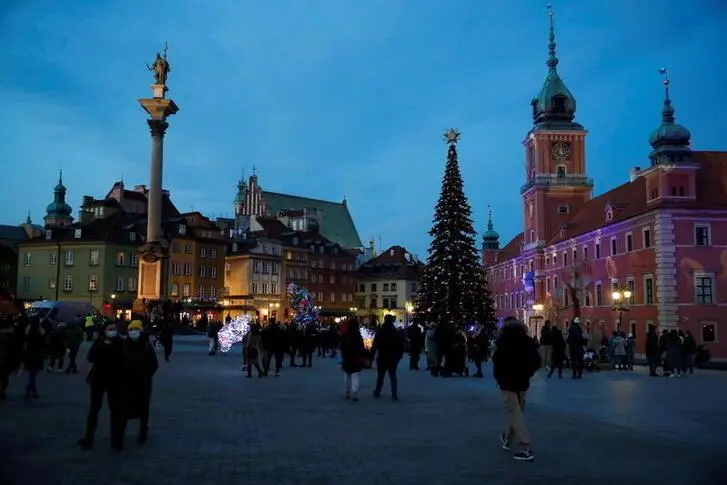PHOTO
WARSAW- Polish borrowers struggling with higher rates will be able to make interest-free repayments on some instalments, while banks will pay into a new aid fund, the prime minister said on Monday, in comments that sent banking stocks lower.
Sharp rises in interest rates imposed by the central bank to tackle the highest inflation in more than two decades have hit many borrowers in a country where floating-rate mortgages are the norm.
"Today, banks are benefiting excessively from rising interest rates," Morawiecki told delegates at the European Economic Congress in the southern city of Katowice.
Morawiecki said the plan to help borrowers would be based around three pillars: "credit breaks" for borrowers, support for those facing difficulties with repayments and the replacement of the WIBOR interbank rate on which most mortgages are based.
He said that in 2022 and 2023, borrowers would be able to make one interest-free repayment per quarter, a total of eight instalments over that time period.
Morawiecki said that a new 3.5 billion zloty aid fund would be created and funded from banks' profits.
WIBOR will be replaced from Jan. 1, 2023.
"We will certainly support these first two pillars because these proposals were signalled earlier, but for the third one we need to know more details," Tadeusz Bialek, the deputy head of the Polish Bank Association, said.
Warsaw's WIG Banks index was down 6% at 1133 GMT.
"The reaction of banks on the stock exchange is unambiguous, this really is negative for the sector," Lukasz Janczak, deputy head of equity research at Erste Securities, said.
He added that when the 3.5 billion zlotys in contributions to the new fund were added to 1.4 billion zlotys in contributions to an existing aid fund, the total represented 2.5%-3.0% of the value of the Polish banking sector.
Morawiecki also said that he expected the Polish economy to grow by at least 4% in 2022. He said the deficit would be at least 4%.
($1 = 4.3340 zlotys)
(Reporting by Alan Charlish, Pawel Florkiewicz and Marek Strzelecki in Warsaw, Karol Badohal in Gdansk; Editing by Alex Richardson and Andrew Heavens)





















